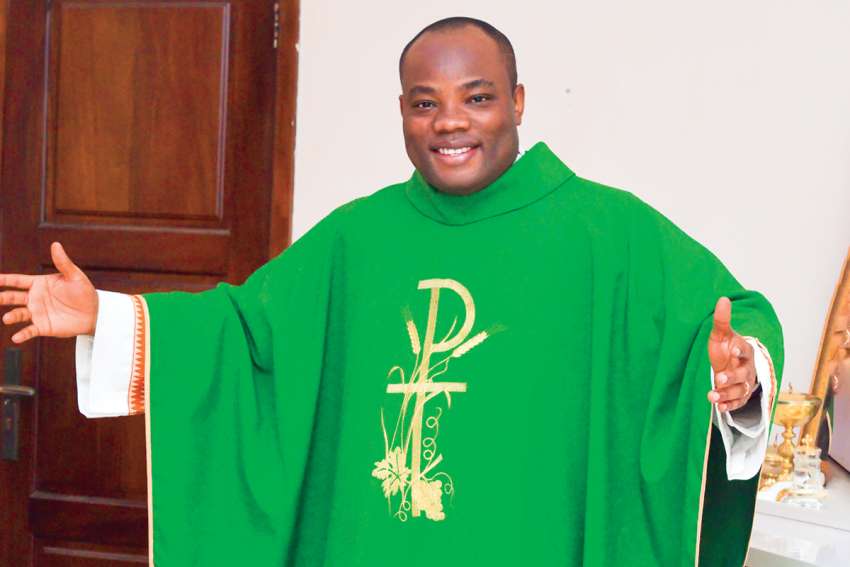Olelewe is one of the over 345 Catholic clerics worldwide who belong to the Society of Divine Vocations, founded in 1920 by the Italian priest Fr. Giustino Russolillo. This religious congregation is more widely known as the Vocationist Fathers.
“Our charism specializes in nurturing and fostering vocations to the priesthood, religious life and married life among young people and the underprivileged,” said Olelewe.
The 37-year-old arrived at the end of last month alongside friend and fellow Vocationist Father Francis Sohe at the behest of the diocese. Olelewe is the associate pastor for Our Lady of the Assumption Parish in Stratford and St. Joachim’s Church in Vernon River. Sohe is the assistant pastor of St. Simon and St. Jude in Tignish.
In an email to The Catholic Register, Fr. James Willick, the pastor for Our Lady of the Assumption and St. Joachim’s, shared his hopes for what Olelewe will be able to accomplish.
“I would hope that from Fr. Benedict’s fresh perspective, he and his community of Vocationists, will provide a much-needed spark to the faith life of the people of the Diocese of Charlottetown,” wrote Willick.
“I would hope that spark inspires vocations to the priesthood and religious life. It’s been a long time since we’ve had a men’s religious community living in our diocese. We need that witness of religious living together as brothers, the virtues of poverty, chastity and obedience. My hope is that the faithful will be inspired by this witness.”
The Nigerian, who is acclimating to “putting on eight or nine (articles of) clothing to go outside” in P.E.I., is seeking to forge a connection with community members immediately.
In addition to his work at the two parishes, Olelewe is visiting schools and celebrating Mass in seniors’ homes. Interacting with elders in Canada is starkly different from the customs of his homeland.
“In Africa, especially in Nigeria, when you see your seniors, you greet them with respect,” said Olelewe. “Sometimes you prostrate, and sometimes you bow. But here, no. I was finding it difficult when (meeting with) someone that I know is the age of my biological father or mother and just calling them by their first name.”
The priest, ordained in 2017, added that “through the special grace of God,” he will find a way to adjust to the cultural differences.
He commends the friendly and welcoming nature of parishioners, who have helped make this transition easier.
Olelewe said multiple young people are expressing an interest in consecrated life. He seeks to gather them to provide catechesis about the priesthood and religious life.
“Out of a group of 20, five (might) show interest by asking ‘could you explain this more,’ ” said Olelewe. “You find out that when you are done explaining the priesthood to the interested five, you might get one person out of that five or two out of that five. Once you have one or two, you nurture, work with and guide them. You want to lead them to the right path and presence so they will not falter.”
Regarding presence, Willick said Benedict’s jubilant and optimistic character makes him an instant hit with churchgoers.
“I would have to say that the greatest impact Fr. Benedict is making in his first few weeks is his witness of joy, which is expressed in his homilies, his conversation and his disposition,” said Willick. “Joy is infectious, and it is already having a positive influence on people. He is already well-liked by the parishioners. Joy is a fruit of the Holy Spirit.
“Also, I believe the joy and positive outlook on things that he has derives from him coming from a part of the world where the Church is very much alive and growing.”


